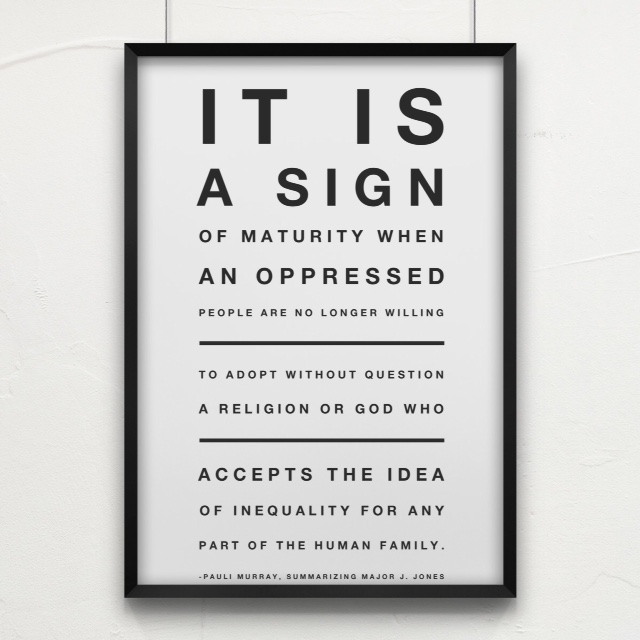
I came across the above quote last semester in my academic research but returned to it in June, when the U.S. Supreme Court announced its decision on same-sex marriage and many Christians reacted. The timing was interesting. It was somewhat unnerving to see so many people who had been angry for almost a year about the unequal treatment of blacks and whites at the hands of police, people who were grieving over the brutal termination of nine black lives in Charleston, S.C.—women and men ranging in age from 26 to their 80s, murdered because one man thought his race superior to theirs, thought them not his equals—deliver such a violent backlash to a decision meant to recognize the equality and humanity of everyone.
Again, I don’t call this being homophobic or bigoted. I call it short-sighted and hypocritical, but also easy to miss. I see this all the time in feminism. Black feminists, womanists and white feminists who get it, are constantly calling out the racism of white feminists who don’t. Feminist communities have to be reminded that “trans lives matter [too],” and that for a working poor woman, the Fight for 15 is more important than “leaning in” or “having it all.”
#SCOTUSMarriage decision presents the church with a unique opportunity to be radical in its expression of love/acceptance. #BlackChurchSex
— Candice Marie Benbow (@CandiceBenbow) June 28, 2015
Like the best feminism, radical love is intersectional. So let’s grow up. Let’s look deeper. Let’s question whether God really wants us to stand for inequality in anyway.

Thank you for the great reminders. Love means compassion, justice, fairness, and equal treatment for all people. We are all connected and what hurts one person hurts the whole community.